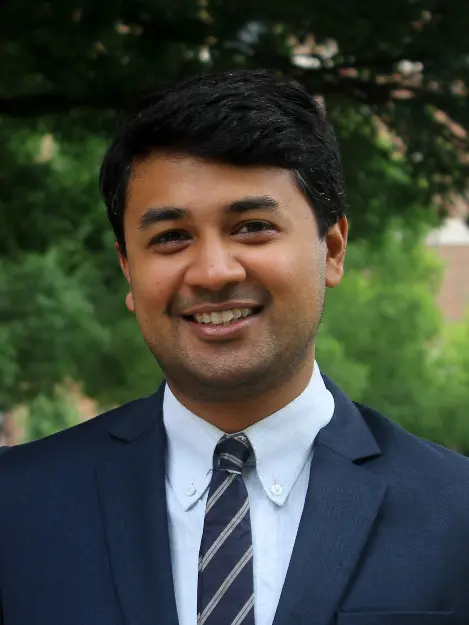For many people, finding their life’s passion is a years-long endeavor involving trial and error and lots of dead ends. For Siddarth Krishna, who started in January 2022 as an assistant professor in the University of Wisconsin-Madison’s Department of Chemical and Biological Engineering, it only took a short drive from his childhood home within the San Francisco Bay Area.
 Siddarth Krishna
Siddarth Krishna
As an undergrad at the University of California at Berkeley, Krishna joined a catalysis research group that sounded interesting. It was a fateful choice. “I fell in love with both the science of catalysis and its applications to sustainability,” he says. “After that, I never looked back.”
Krishna then came to the University of Wisconsin-Madison for graduate school, attracted by its global reputation in chemical engineering and heterogeneous catalysis. He studied for five years with now-Professor Emeritus James Dumesic and Richard L. Antoine Professor George Huber, investigating the catalytic production of chemicals from biomass derived from grasses or agricultural waste. “I got immersed deeper and deeper in the topics of heterogeneous catalysis and sustainable chemistry,” he says.
These experiences convinced him that he could have a positive impact on society while working on exciting scientific questions, and while getting to teach, mentor, and learn from talented students – all of which led him to pursue an academic career.
In 2019, Krishna became a Henson postdoctoral fellow at Purdue University, where he worked with Professor Rajamani Gounder on designing zeolite catalysts to eliminate pollutants, like NOx, from diesel engines, using a combination of reaction kinetics and spectroscopy tools.
Returning to Madison, Krishna plans to draw on both his PhD and postdoctoral training, continuing his work in sustainable chemistry and catalyst design within his independent research group. That will include researching ways to produce chemicals from low-carbon feedstocks with lower environmental footprints than oil and gas and investigating ways to mitigate environmental pollution from sources like automobile engines.
“The common theme is understanding the mechanisms underlying catalytic reactions,” he says. “My group will combine precise synthesis and characterization of catalyst materials with kinetic and mechanistic studies of complex reaction networks to develop new catalyst design principles that enable transformative improvements in sustainable chemical technologies.”
In particular, Krishna is interested in not only engineering the properties of the catalysts themselves, but also in engineering the microenvironments that influence which active sites are formed and how reacting molecules interact with those sites. He is also interested in investigating the dynamic behavior of catalysts. The traditional view of heterogenous catalysts is that they are solid, static materials. However, research shows that the structure of a catalyst changes depending on its reaction environment. Krishna hopes that understanding these effects of microenvironments and dynamic behavior will open up new ways of controlling reaction pathways by precisely engineering the molecular-scale properties of catalyst active sites.
The University of Wisconsin-Madison, says Krishna, is one of the best places to conduct world-class catalysis research due to its long-standing traditions and team of highly visible researchers in this area. Krishna says having that type of community and academic support will help him accelerate his research. “It is wonderful to come back to a place that has historically been a leader in catalysis and prides itself on collaborative, impactful research efforts combining complementary expertise from experimental and computational researchers,” he says. “This is a special place in which to launch my independent research career.”